Filter by
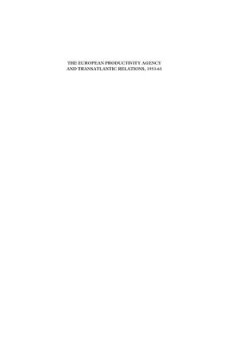
The European Productivity Agency and Transatlantic Relations 1953-1961 (Vol. 4)
A study of European co-operation and transatlantic relations in the 1950s as well as on the changes these relations underwent during the early postwar period. The European Productivity Agency (EPA) was created in 1953 as a semi-autonomous organization within the framework of the Organisation for European Economic Co-operation (OEEC) and wound up eight years later, in 1961, when the United State…
- Edition
- -
- ISBN/ISSN
- 9788763502122
- Collation
- -
- Series Title
- -
- Call Number
- -
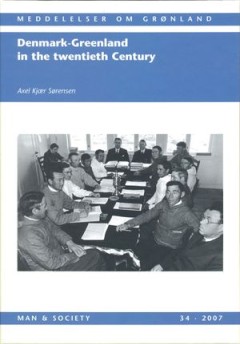
Denmark-Greenland in the twentieth century (Vol. 341)
This book traces Danish-Greenlandic relations over 100 years and is the first publication to cover the period 1900-2000. The main trend is the development from a colonial situation in 1900 with a state owned company runnig nearly all business to an open economy with steadily growing selfgovernment for Greenland short of full independence. The Danish policy can be described as benevolent, but fi…
- Edition
- -
- ISBN/ISSN
- 9788763530705
- Collation
- -
- Series Title
- -
- Call Number
- -
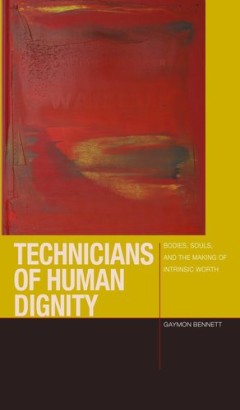
Technicians of Human Dignity: Bodies, Souls, and the Making of Intrinsic Worth
Technicians of Human Dignity traces the extraordinary rise of human dignity as a defining concern of religious, political, and bioethical institutions over the last half century and offers original insight into how human dignity has become threatened by its own success. The global expansion of dignitarian politics has left dignity without a stable set of meanings or referents, unsettling contem…
- Edition
- -
- ISBN/ISSN
- 9780823267774
- Collation
- -
- Series Title
- -
- Call Number
- 361.61 BEN t
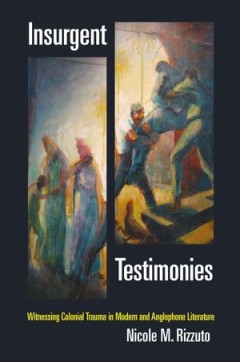
Insurgent Testimonies: Witnessing Colonial Trauma in Modern and Anglophone Li…
During the second half of the nineteenth century and the first half of the twentieth, insurgencies erupted in imperial states and colonies around the world, including Britain's. As Nicole Rizzuto shows, the writings of Ukrainian-born Joseph Conrad, Anglo-Irish Rebecca West, Jamaicans H. G. de Lisser and V. S. Reid, and Kenyan Ng gi wa Thiong, testify to contested events in colonial modernity in…
- Edition
- -
- ISBN/ISSN
- 9780823267811
- Collation
- -
- Series Title
- -
- Call Number
- 361.61 RIZ i

Violent Exceptions: Children’s Human Rights and Humanitarian Rhetorics
Violent Exceptions turns to the humanitarian figure of the child-in-peril in twenty-first-century political discourse to better understand how this figure is appropriated by political constituencies for purposes rarely to do with the needs of children at risk. Wendy S. Hesford shows how the figure of the child-in-peril is predicated on racial division, which, she argues, is central to both cons…
- Edition
- -
- ISBN/ISSN
- 9780814281178
- Collation
- -
- Series Title
- -
- Call Number
- 341.4 HES v
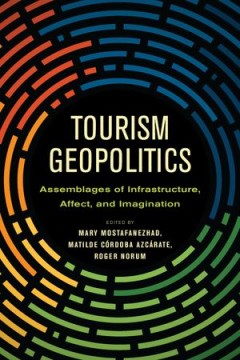
Tourism Geopolitics: Assemblages of Infrastructure, Affect, and Imagination
By the start of the century, nearly one billion international travelers were circulating the globe annually, placing tourism among the worlds’ most ubiquitous geopolitical encounters. While the COVID-19 pandemic brought the industry to a sudden halt, its geopolitical significance remained. With striking clarity, tourism desires and reinvented mobilities revealed the impermanence of Old World …
- Edition
- -
- ISBN/ISSN
- 9780816539307
- Collation
- -
- Series Title
- -
- Call Number
- 338.4791 TOU t

Bodies Unburied Subversive Corpses and the Authority of the Dead
The human body is the locus of meaning, personhood, and our sense of the possibility of sanctity. The desecration of the human corpse is a matter of universal revulsion, taboo in virtually all human cultures. Not least for this reason, the unburied corpse quickly becomes a focal point of political salience, on the one hand seeming to express the contempt of state power toward the basic claims …
- Edition
- -
- ISBN/ISSN
- 9781943208111
- Collation
- -
- Series Title
- -
- Call Number
- -
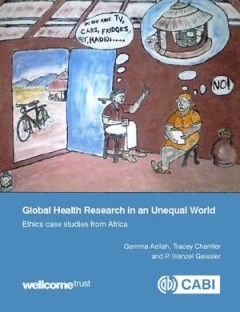
Global Health Research in an Unequal World
This book is a collection of fictionalised case studies of everyday ethical dilemmas and challenges, encountered in the process of conducting global health research in places where the effects of global, political and economic inequality are particularly evident. It is a training tool to fill the gap between research ethics guidelines, and their implementation 'on the ground'. The case studies,…
- Edition
- -
- ISBN/ISSN
- 9781786390042
- Collation
- -
- Series Title
- -
- Call Number
- -
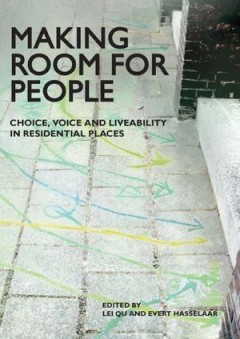
Making Room for People
Making Room for People elaborates on preferences in housing. It explores how users, occupants, and citizens can express their needs, searching for the enhancement of individual choice and control over their residential environment, and the predicted positive spin-off’s for urban collectives. The central question is: What are the conditions under which an increase of people’s choice and voic…
- Edition
- -
- ISBN/ISSN
- 9789085940326
- Collation
- -
- Series Title
- -
- Call Number
- -
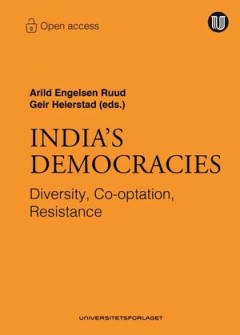
India’s Democracies
This volume is about India’s deep and complex relationship with its chosen form of government. It is an interdisciplinary book with approaches drawn from history, anthropology, sociology, political science and social geography. We believe this volume provides new perspectives on how to approach and analyse the complexity of India’s democracy. The book’s unfortunate publishing history also…
- Edition
- -
- ISBN/ISSN
- 9788215026886
- Collation
- -
- Series Title
- -
- Call Number
- -
 Computer Science, Information & General Works
Computer Science, Information & General Works  Philosophy & Psychology
Philosophy & Psychology  Religion
Religion  Social Sciences
Social Sciences  Language
Language  Pure Science
Pure Science  Applied Sciences
Applied Sciences  Art & Recreation
Art & Recreation  Literature
Literature  History & Geography
History & Geography